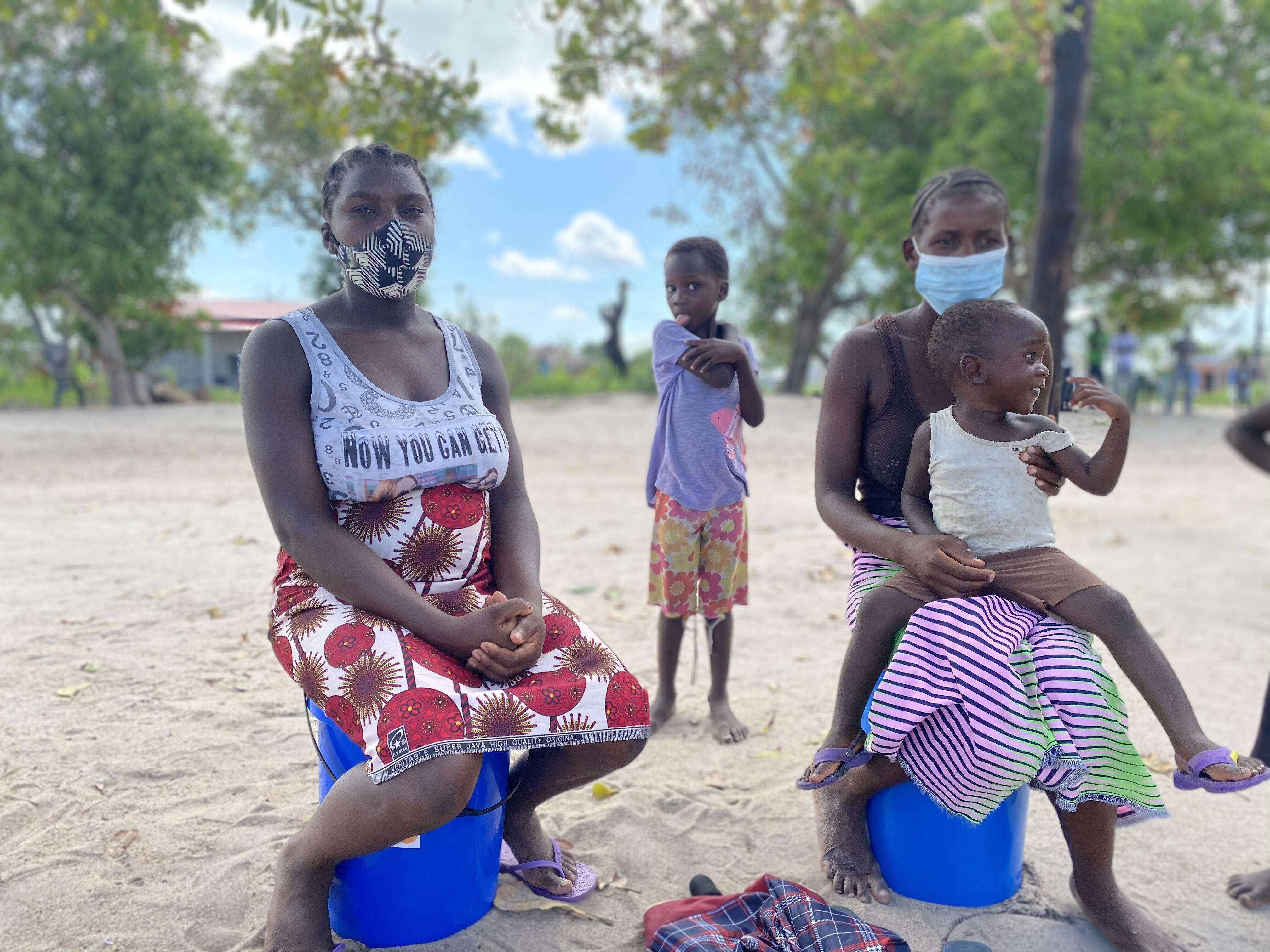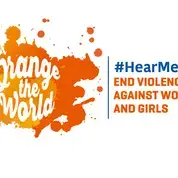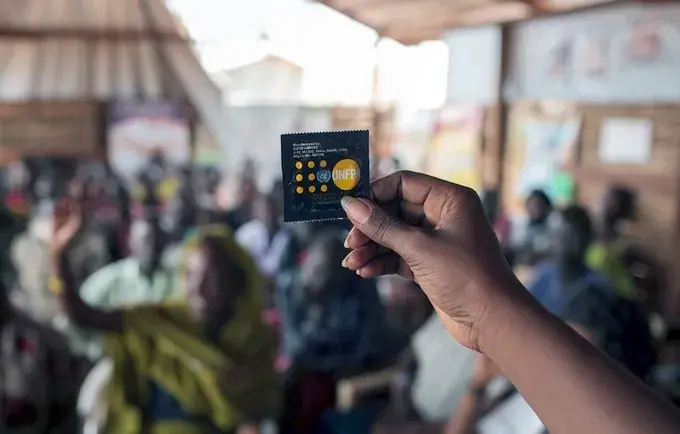It is known that during humanitarian emergencies, natural disasters or public health crises, like COVID-19, people with disabilities face greater needs, may encounter discrimination and barriers to information, support and services related to gender-based violence (GBV) and sexual and reproductive health (SRH).
Women and girls also often bear the brunt of a crisis. In a province like Sofala, which has experienced multiple natural disasters, women and girls are becoming more resilient in the wake of a disaster. From adapting to life with disabilities or pursuing one’s passion regardless of their age, three women share their story of overcoming adversity, inspiring others and moving forward.
-----
Abandoned by her husband after a motorcycle accident left her no choice but to amputate her leg, Dona Lidia currently lives with her two children (19-year old boy and 16-year old girl) in Sofala province in Mozambique.
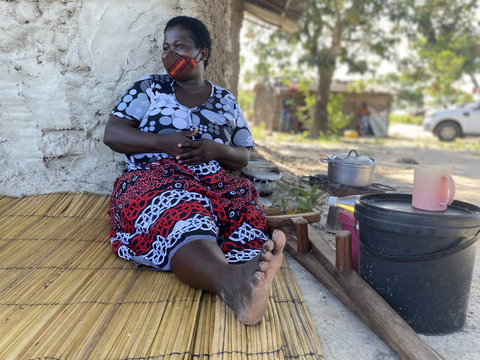
Dona Lidia or ‘grandma Lidia’ as she is affectionately called, lives in the Mandruzi resettlement area, a location housing people impacted by Cyclone Idai. Dona Lidia has lived there since 2019, after the Cyclone and strong winds and heavy rains that followed destroyed her home, leaving her with no place to stay.
In a joking tone Grandma Lidia starts by saying that just hearing the words, ‘wind, cyclone, or storm’ is a reason to start “running” to the nearest shelter.
As soon as she heard about the possibility of category-two Cyclone Eloise making landfall in the same province in mid-January, she did not hesitate and went to the nearest school being used as a shelter in disaster settings. Though she was safe, unfortunately when she returned home, all of her belongings had gone with Eloise's fury.
“The flour I had saved to dry was completely submerged in water and the clay with which my house is coated, was completely damaged,” she explains.
Grandma Lidia is one of the hundreds of thousands of women and girls impacted by Cyclone Eloise, which has to date affected more than 366,000 people in Sofala Province alone.
Resilience in the wake of a disaster
Lidia is an example of resilience in the middle of the pandemic and amongst a Cyclone, as she always has a smile on her face and a positive attitude. She has not let her disability impact her enthusiasm to take part in activities and find a strong community. Since Cyclone Idai, Lidia has attended a UNFPA-supported women-friendly space funded by the Government of Norway, where she has learned how to make rugs. By using new tools, materials and resources, Lidia and other Cyclone-affected women are able to sell the rugs in the area for a small income.
Lidia, as her role as a community matriarch, has also become a source of comfort and support for women who approach her to discuss their issues or concerns of domestic and gender-based violence. At first these women are afraid to report their cases, but Lidia encourages them to report their situation to the police and seek help.
“These are behaviours that we need to avoid because they feel scared and unwilling to expose such cases of domestic violence,” says Lidia.
The other side of the coin
Like Grandma Lídia, UNFPA Mozambique staff met Joaquina, a 27-year-old girl who has had a chronic illness since she was 10 years old.
Joaquina lives with her mother and is part of a group of women from the UNFPA-supported women friendly space in Mandruzi dedicated to the handmade craft and creation of carpets, cutting and sewing.
“I have had this condition for 17 years, which keeps me from performing various tasks, and I fear leaving behind many of my dreams,” says Joaquina.
Unfortunately, Joaquina cannot go to school and learn, because one of the effects of her condition is visual impairment. She can not read for long periods of time, nor travel long distances, as she suffers from extreme fatigue.
She and her mother moved to Mandruzi shortly after Cyclone Idai and have not moved since. Even after the damage caused by Tropical Storm Chalane and Cyclone Eloise, they consider themselves to be in better condition than the scenario after Idai - both physically and mentally. They have become more resilient.
Currently, Joaquina and her mother live in a house built with local material, but the construction of a resilient house with better conditions is already underway.
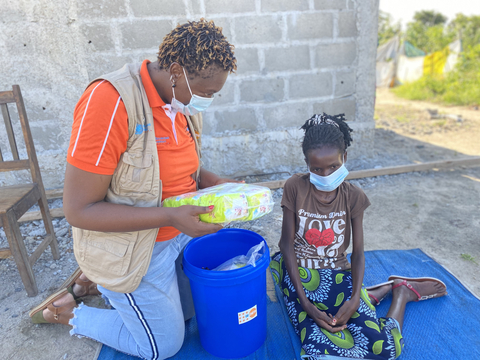
In late January, Lidia and Joaquina both received dignity kits supported by UNFPA. With funding support from Norway, the dignity kits aim to lessen the burden of the Cyclone’s impact by providing essential and culturally-appropriate items, including soap, reusable menstrual pads, capulanas (traditional cloths), underwear. The kits also contain items to help women and girls mitigate their risk of gender-based violence, including a flashlight, a whistle, and information on where and how to access services.
Pursuing her dream to become a teacher at 50
Rabeca Francisco Andrade, 52 years old and a mother of 5, learned to sew from a machine and make rugs many years ago with the help of her mother. Before Cyclone Idai, she never imagined becoming a teacher. Today she is proud to have taught more than 200 displaced women in Sofala Province in the art of rug-making and confesses to being one of the few displaced women, if not the only one, who had the opportunity to visit all the women-friendly spaces in the resettlement districts of Sofala province. Traveling through all the districts, Rabeca has proudly taught women to use new tools, equipment and material so they can begin sewing and producing carpets, rugs and other handicrafts. By doing so, these women are also learning to become more economically independent.
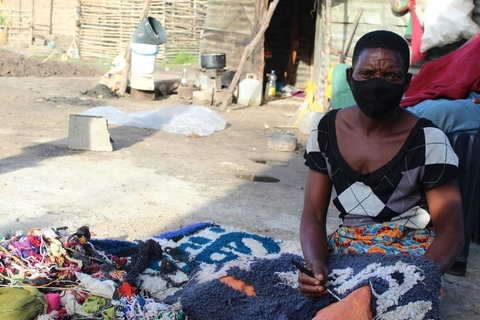
With the small income she earned, she bought a cell-phone where she makes videos, receives messages for advice from many women and teenagers, and has managed to educate all of her children. Rabeca reaffirms that before this program she never spoke or was in front of people and did not expect that at 50 she would become a teacher and travel. Her dream is to see Mandruzi's women-friendly space improved with good infrastructure in order to continue teaching in a good and motivating space.
In the end, Rabeca described the safe space in one word: “it's our home”.
Cyclone Eloise has so far affected more than 49,500 families, destroyed some 17,000 homes, 82 health centers, among other public utility infrastructures. For this reason, for many women, the women-friendly spaces represent a form of shelter and a safe space to start over while exchanging experiences and gaining support from other girls and women just like them.
These three women - Lidia, Joaquina and Rabeca - may all come from different communities with varied backgrounds, but they all have one thing in common: in the wake of a Cyclone and personal challenges, they have all persevered with determination and resilience to carve out the life they truly desire.

